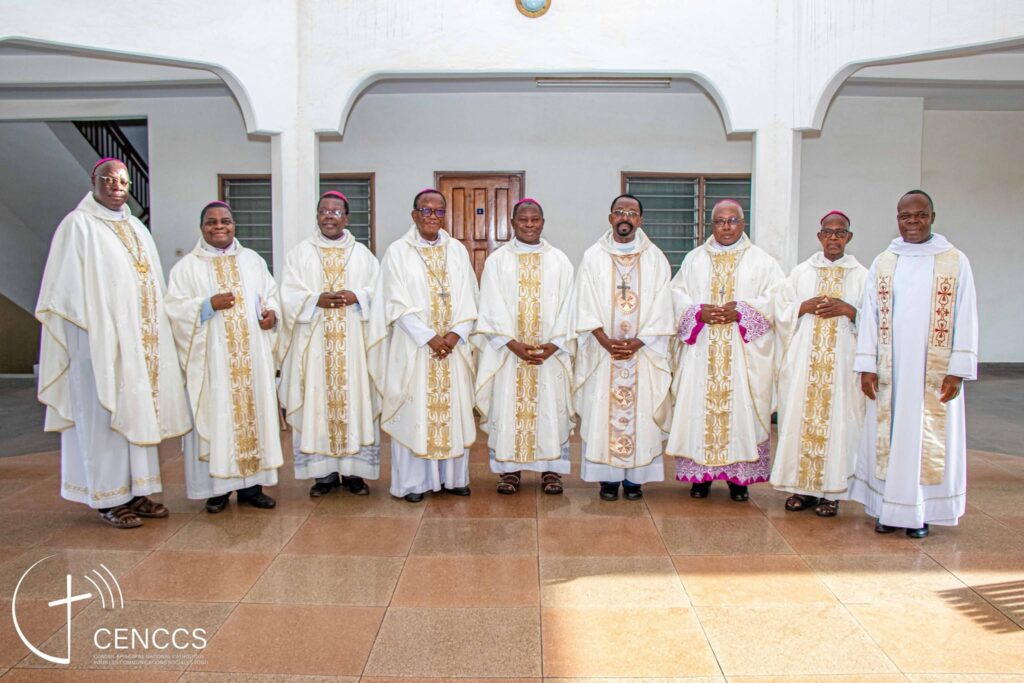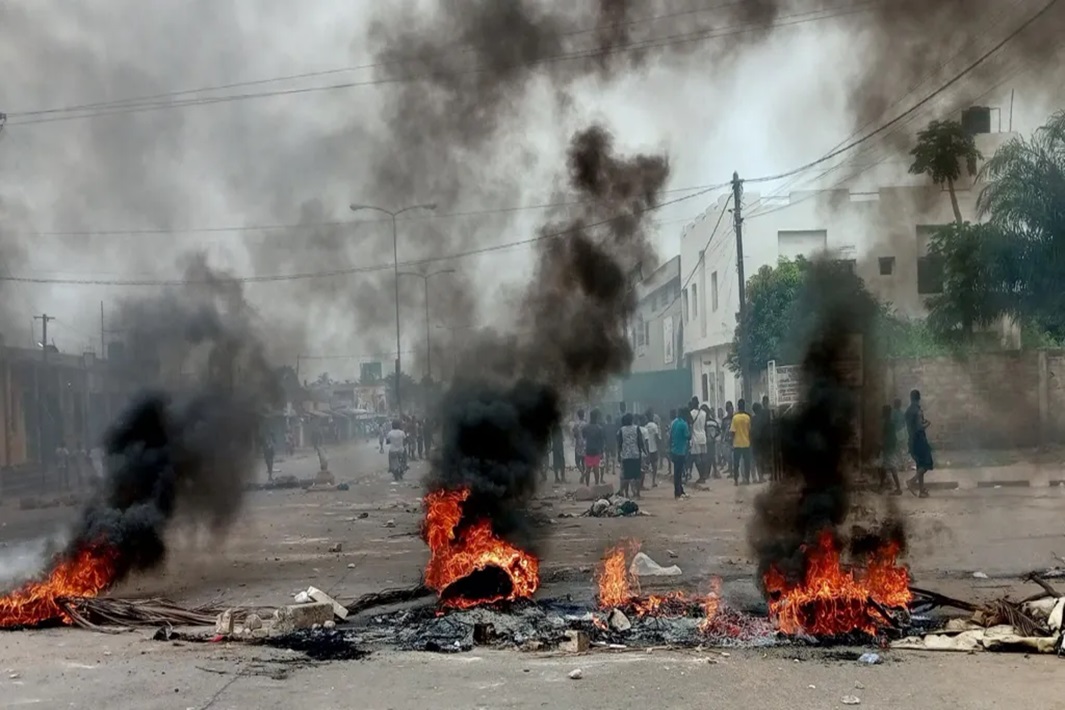By Paschal Norbert
LOMÉ, JULY 1, 2025 (CISA) – The Catholic Bishops of Togo have condemned the brutal force used against protesters during the recent anti-government demonstrations, describing the state-sanctioned violence as “unacceptable and unbearable,” warning that the continued erosion of truth and justice threatens to plunge the nation into chaos.
In a powerful statement released at the close of their 139th ordinary session on June 30, the bishops decried the killing of at least seven civilians during protests on June 26–28 in the capital Lomé and other cities.
“We vigorously condemn once again this unacceptable and unbearable violence, whatever its origins, its perpetrators or its justifications,” read the communiqué signed by Rt Rev Benoît Alowonou, Bishop of Kpalimé and President of the Conference of Bishops of Togo (CET).
“Such disproportionate use of force to suppress a demonstration, even if it is illegal, is simply unacceptable,” stated the prelates who urged the security forces to turn from violence, reminding them that “the cries of the innocent are lamentations that rise to God.”

The protests, organized by youth-led movements and civil society coalitions, were triggered by sweeping constitutional changes that critics say amount to an “institutional coup.” President Faure Essozimna Gnassingbé, who has ruled Togo as president from 2005 until May 2025, was recently sworn in as the first President of the Council of Ministers, a newly created role with no term limits. This marks a dramatic shift from a presidential to a parliamentary system, effectively allowing Gnassingbé, and by extension the Gnassingbé dynasty, to retain power indefinitely.
Faure Gnassingbé’s family has dominated Togo’s political landscape since 1967, when his father, the late President Gnassingbé Eyadéma, seized power in a coup. Faure’s own ascension to power in 2005 was marred by violence and contested elections. The latest governance overhaul, passed by a rubber-stamp National Assembly, eliminates presidential elections and hands executive authority to the parliamentary majority, currently controlled by Gnassingbé’s ruling party.
Civil society groups, including the National Platform for Civic Space and Development Effectiveness and Le Front Citoyen Togo Debout, report that security forces used excessive force during last week’s protests. Seven bodies were pulled from rivers around Lomé, allegedly victims of extrajudicial killings by security personnel and government-linked militias. The government, however, has denied any wrongdoing and blamed a “foreign-orchestrated disinformation campaign.”
The bishops offered prayers for the victims and condemned not only physical violence but also the “moral violence” of disinformation.
“Persisting in seeing the truth and making others believe the false is a moral violence that breaks cohesion,” they warned. They urged Togolese leaders, security forces, and citizens alike to “demonstrate responsibility, restraint and sincere commitment to the construction of our country.”
Demonstrations have been officially banned in Togo since 2022 under the pretext of national security. The arrest and psychiatric detention of popular rapper and activist Aamron (Narcisse Essowè Tchalla) last month helped galvanize public anger, particularly among urban youth.
Over 50 people were arrested during the recent protests, though most have since been released. The Bishops’ Conference joins a growing chorus of domestic and international voices calling for investigations into the crackdown and respect for fundamental freedoms.
